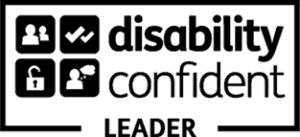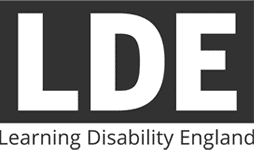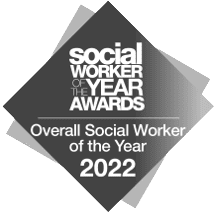Jayne Leeson, MBE – CEO Changing Our Lives
Story telling has existed since the beginnings of human civilisation. Whether it be cave painting, oral story telling or written narrative, humans will always tell stories. Stories are used to preserve traditions and culture, as well as to entertain and to educate. However, when it comes to telling our own personal stories, especially if these are traumatic, it’s become somewhat fashionable since the late 20th century in the West for people to share very intimate and private experiences. Fuelled by the development of talking therapies, self-help and the mindfulness movements, we are all encouraged to tell our own truth and our own stories. Whilst, talking therapies and being mindful are key tools in maintaining good mental health, talking through personal trauma if we are not careful can keep individuals in the trauma, reliving experiences and creating personal narratives that keep us ruminating on past trauma and bad memories.
For the past four decades at least, there has been a drive to have disabled people and people with lived experience of mental health difficulties ‘share’ their stories with professional bodies and organisations. If these stories and experiences are carefully chosen and directly relate to a systemic or operational change, they can be utilised to great effect. However, all too often I meet professionals who think it’s enough to have a story at the beginning of a meeting and this will miraculously mean professionals in the room are able to understand the issue better. One story with highly personal information, often revealing traumatic experiences, is seen as the gateway into improved professional understanding of highly complex service responses, and is invariably a salve to the consciences of those who worry they have not done enough to engage the community or those who want to tick the coproduction box. Strategies are written largely in professional circles, but this is seen as ok as people’s stories have been included and a few individuals have been rolled out in senior strategic settings, so job done. This is both patronising and tokenistic.
We have times when disabled people we employ go to professional meetings and are seen as the individual in the room with the ‘lived experience’ and so the assumption is they will want to speak about it, if not in the meeting itself, maybe at the next conference or board meeting. Some professionals will be so enamoured with meeting a disabled person in the flesh, as they may not have worked with people for years or maybe never, that they faun over the individual, telling them how brave they are for sharing their truth publicly. They would be better served to think how brave the individual is required to be everyday facing discrimination and poorer life opportunities because of systemic barriers. We have even had one instance where a senior disabled member of our team went to a meeting to make a professional presentation which had no relevance to their life, and they were hugged and offered a box of chocolates at the end by the event organisers who were unable to find a more appropriate professional response to a speaker. Needless to say, our team member did not accept the chocolates, despite having a wicked sweet tooth!
Just because people are disabled, doesn’t mean they want to talk about their experiences. Why would they? They just want to get on with their life like everyone else. Equally, being disabled in and of itself does not mean the person has an interesting story or that their lived experience fits in with what the professional is trying to achieve. This might be hard for some individuals to read, however, we will often come across individuals who will be happy sitting in a day centre, with very little activity, segregated from the world. We respect their views and appreciate they have little if any other life experiences to broaden their view. However, this is not a message we choose to promote as we strive for equal opportunities and people living ordinary lives in the community, rather than living apart and experiencing life through a segregated lens.
Despite these difficulties, lived experience and personal story telling remains one of the most powerful tools in our arsenal in Changing Our Lives. We are, however, very careful when these stories are used and always consider the impact they are likely to have. Stories of personal experience need to be directly related to the issue we are tacking, for example our Hospital To Home series was developed to showcase people’s lives after hospital, promoting the positive message that if support is developed and delivered in a bespoke way, wrapped around the individual, living in one’s own home is beyond no one. These stories are told in an environment where professionals see individuals living in hospitals as ‘the most complex’ people who would not cope with life in society. Not all, but many of these professionals have never developed bespoke support packages, and so without a frame of reference find it difficult to imagine and believe what is possible. It is in this context that these stories are utilised strategically to bring about change.
Equally the people we enable to tell their story invariably work with us over a period of time; they are embedded into a programme of work. They rarely share their story and then don’t work with us again. When working with people with learning disabilities who often need others to tell part of their story, maybe because they can’t remember it or their communication needs mean another person needs to support with its telling, its vital that we get to know them over time, so that the accurate story shines through. Not always by any means, but sometimes those supporting the individual on a day to day basis and other professionals present in an individual’s life may enhance a story to reflect better on themselves or the support they provide. Or they may simply present the individual in negative terms, emphasising all of the difficulties, rather than the progress made and solutions found. Getting to know a person and understanding some things about their lives can mean you are better able to decide whether the story fits the message you are delivering or the outcome you want to achieve. At the same time, if you don’t know an individual, you can’t make a judgement about the impact telling their story is likely to have on them and in many instances it is often not be the best thing for the individual to tell their story.
We all have stories about ourselves that we share or don’t share in different contexts. For most of us being asked to share our most traumatic experience at a work meeting would be unheard of. We have to ask ourselves why this is expected or even encouraged from disabled people or people with mental health difficulties. As professionals we need to be acutely aware that we are not entitled to people’s stories and experiences, anymore than they would be entitled to ours.





